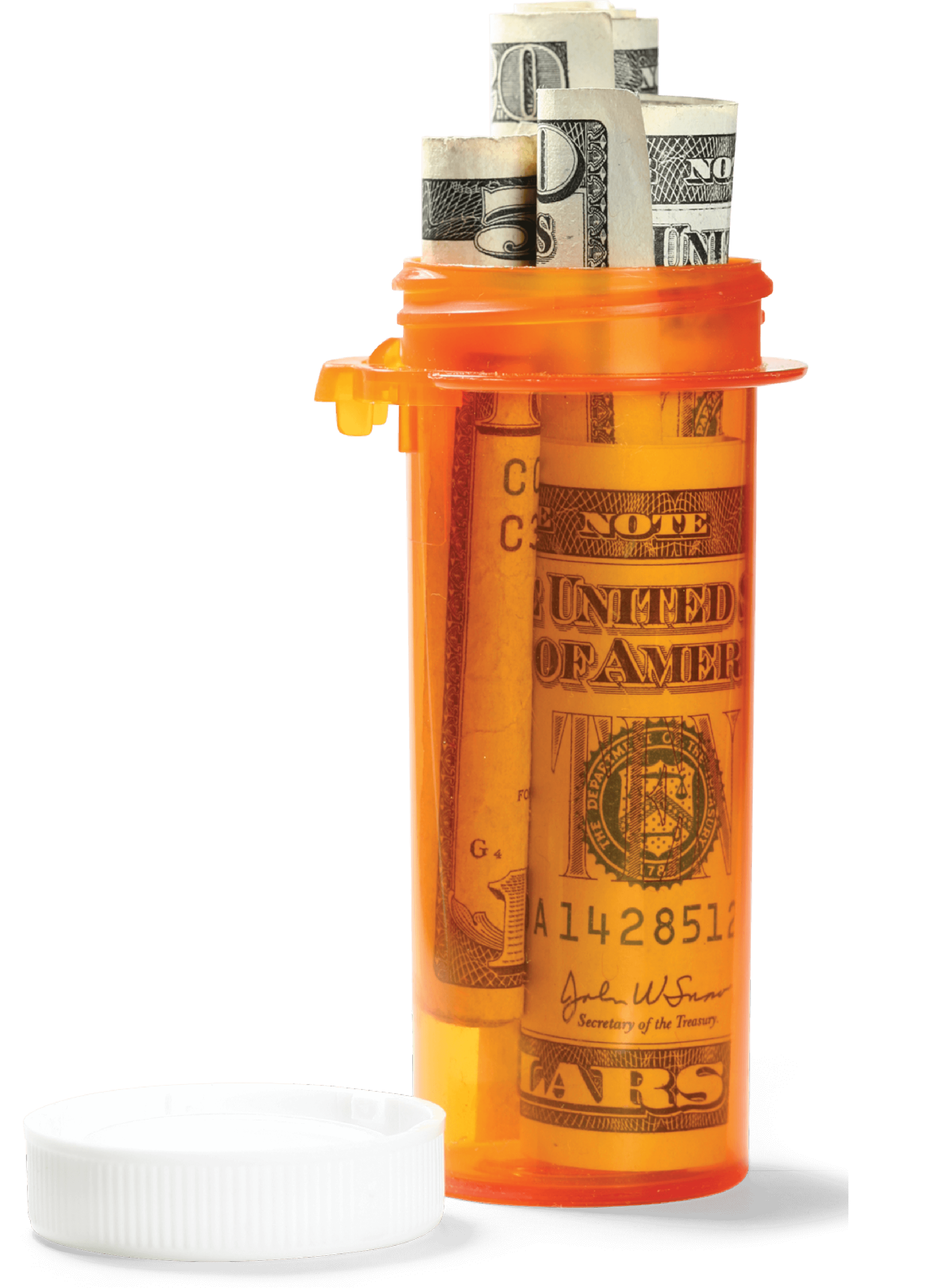In the News
FIRST-EVER BLOOD TEST FOR ALZHEIMER’S
More than 7 million Americans have Alzheimer’s disease, and testing for it may soon be a lot easier: The Food and Drug Administration (FDA) has approved the first blood test that can help doctors diagnose the disease in some patients.
The test, called Lumipulse, can detect abnormal clumps of protein—known as amyloid plaques—in the brain. These plaques disrupt brain cell function and are a hallmark of Alzheimer’s.
Before this approval in May, doctors used PET scans and spinal fluid tests to find the plaques that forecast the disease.
But those procedures are expensive and, in the case of spinal tests, invasive. Lumipulse requires only a blood draw from patients age 55 or older who are showing signs or symptoms of the disease.
“Having a blood test just makes it so much easier in being able to make a diagnosis of Alzheimer’s disease,” says Charles Bernick, M.D., a neurologist with the Cleveland Clinic Lou Ruvo Center for Brain Health, in Las Vegas.
The test’s manufacturer, Fujirebio Diagnostics, has not yet put a price tag on it.


Lumipulse measures two proteins in blood plasma that “correlate to the presence or absence of amyloid plaques in the brain, reducing the need for a PET scan,” the FDA says.
Doctors can also use neurological exams and cognitive tests to diagnose Alzheimer’s.
In recent years, the FDA has approved two medications for treating Alzheimer’s: Kisunla (donanemab) and Leqembi (lecanemab). These drugs, given by infusion, don’t cure the disease but can help slow the rate of decline in people in its early stages.
Some Alzheimer’s specialists already use blood tests not cleared by the FDA to help with a diagnosis. But agency approval opens the door for insurance coverage and more widespread use.
LIMITS ON FREE COVID SHOTS COMING SOON?
Federal health officials have outlined plans in The New England Journal of Medicine that indicate a narrower population could have access to updated COVID-19 vaccines this year.
Rather than making the shots available to all individuals 6 months and older, as they are now, officials at the Food and Drug Administration said in the May 20 article that the agency could limit eligibility to adults 65 and older, as well as individuals with at least one underlying health condition, like asthma, heart disease, diabetes or obesity.
The article’s authors, FDA vaccines chief Vinay Prasad, M.D., and FDA Commissioner Martin Makary, M.D., note that up to 200 million Americans would still have access to COVID-19 vaccines.
For those age 64 and younger without risk factors, the FDA plans to evaluate the benefit of the vaccines before licensing them for this population, Prasad and Makary write.
As of early June, CDC guidance says that healthy children 6 months to 17 years can receive the vaccine in consultation with their doctor.
FBI: Elder Fraud Is Skyrocketing
Older Americans reported nearly $4.9 billion stolen through fraud last year, with an average loss of $83,000, according to an annual FBI report released in April. That’s a stunning 43 percent increase in one year.
Americans of all ages reported a record $16.6 billion stolen through internet scams and fraud in 2024, up 33 percent over 2023’s losses, with an average loss of just over $19,000.
The FBI’s report “shows that fraud affects people of all ages, but when older adults are victimized, the impact is often catastrophic,” says Kathy Stokes, AARP’s director of fraud prevention programs.
Investment scams took the largest financial toll on victims 60 and older last year, with more than $1.8 billion in total reported losses.
Cryptocurrency investment fraud is a growing concern, notes Christopher Delzotto, section chief for financial crimes, FBI Criminal Investigations Division. Last year the FBI received more than 41,000 complaints, with $5.8 billion reported stolen. Scammers use financial grooming, also known as pig butchering: They pretend to be the victim’s friend or romantic interest before suggesting a “sure-bet” investment opportunity.
Call the free AARP Fraud Watch Network Helpline (877-908-3360) for information and support.
TOOTH OR CONSEQUENCES

New evidence shows we skip flossing at our peril. Researchers in Japan recently published a study indicating that bacteria from gum disease can slip into the bloodstream and infiltrate the heart, causing a buildup of scar tissue that raises the risk of irregular heart rhythm.
White House Seeks Lower Drug Prices

President Donald Trump signed an executive order in May that directs the federal government to tell pharmaceutical manufacturers to meet price targets on their products that match what other countries pay. AARP and other advocacy groups applauded the order as a useful step to help older Americans with expensive medications.
The order directs the U.S. Department of Health and Human Services (HHS) to give “most-favored-nation” price targets to pharmaceutical manufacturers and monitor their efforts to meet them. If manufacturers do not make significant progress toward these targets, additional steps could be taken, the White House says, though many questions remain on how the plan will work.
“For too long, big drug companies have been ripping off America’s seniors—charging the highest prices in the world for lifesaving prescriptions,” said Nancy LeaMond, AARP chief advocacy and engagement officer.
An analysis from HHS and Rand Health Care found U.S. drug prices in 2022 were nearly three times as high as in other countries included in the study.
FROM TOP: SHUTTERSTOCK, GETTY IMAGES